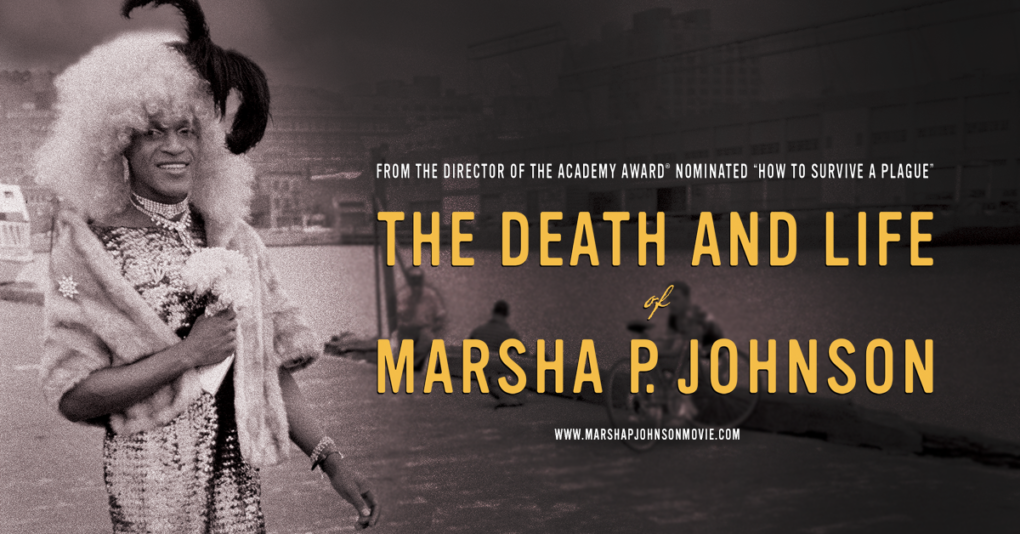
Last month, Fresno hosted the 28th annual Reel Pride Film Festival, showing exclusively LGBTQ+ inclusive films. The festival does wonders offering members of our community a door to worlds they may never experience themselves. This year’s President’s Pick film was “The Death and Life of Marsha P. Johnson,” directed by David France. The film is just as informative as it is moving and is extremely relevant to the LGBTQ+ movement today. It showcases issues from the death rate for trans women in America to the Gay Panic Defense to transgender exclusion from the LGBTQ+ movement.
Marsha P. Johnson is a beloved icon for many that is entirely unknown to some. She is often considered to be the queen and leader of the gay rights movement, along with Sylvia Rivera. Both were trans women and together they created STAR, Street Transvestite Action Revolutionaries.
The film follows Victoria Cruz as she tries to unearth answers regarding Johnson’s mysterious and untimely death on July 6th, 1992, when she was found floating in the Hudson River. While her death was immediately cast away as a suicide, many of Marsha’s close friends knew she would never end her life. The film shows that Cruz faced multiple roadblocks as the police refused to cooperate or were entirely apathetic about the investigation.
Johnson’s death was quite possibly the most publicized death of a trans woman of color to date, yet there was no true investigation.
The film gives an in depth look into the extremely high death rates for trans women, particularly trans women of color, and the lack of attention the deaths receive from the police and the media.
In 2016 alone, there were 22 reported murders of trans people, most of whom were in their 20s. Trans women are 4.3 times more likely than cisgender women to be murdered, and 87% of trans women murdered are of color. While these statistics are shocking, they are far from new. As in Johnson’s case 25 years ago, these murders hardly get adequate police attention. Her own death was immediately ruled a suicide, despite considerable evidence that she was being chased, which would be a valid murder charge. And even if these murder cases make it to court, the murderers often get off with less time than most murderers do — quite obviously because their victims are transgender.
“The Death and Life of Marsha P. Johnson,” highlighted this issue, showing a trial in which the Gay Panic Defense was used to shorten the the murderer of a black trans woman’s sentence.
The Gay Panic Defence is a real — yes, real — legal defense in which the defendant claims they “acted in a state of violent temporary insanity because of a purported psychiatric condition called “homosexual panic”.
Essentially, this means that the defendant claims that they were so taken aback by the advances made by an LGBTQ+ person (in cases of trans murders, they often claim that they did not know the victim was trans) that they entered a psychotic state characterized by unusual violence due to the “frightening” and “offensive” advances.
The first time I had even heard of this atrocity was while I was watching “The Death and Life of Martha P. Johnson” and I couldn’t believe it existed. But here we are, in the nation of “liberty and justice for all”, and this defense is perfectly legal in all states except for California and Illinois, getting murderers of LGBTQ+ people off with lighter sentences or even leading to mistrials.
Another very important, and often very overlooked, issue the film highlighted is the ostracizing of transgender people by the LGBTQ+ community. The film showed heart wrenching clips of Sylvia Rivera, who is credited with throwing the first molotov cocktail at Stonewall, being booed off stage by those marching in the very movement she played a major role in creating. As mentioned in the film, many members of the trans community feel that once gay marriage was legalized, T was dropped from the LGBTQ+ acronym as they “got what they wanted” and left the trans community behind.
Those looking at the LGBTQ+ movement from the outside may have no idea that trans exclusion is a very real component of the movement, and only see it as the unified image that the movement wants to project. It is for this reason, among many, that the film is such an important film to see. It educates the audience about issues they may have never otherwise been exposed to.
“The Death and Life of Marsha P. Johnson” is extremely informative and relevant to the LGBTQ+ movement today.
It is also a heart wrenching film that allows the viewer to personally connect to Sylvia and Marsha, whether they knew of them before or are meeting them for the first time.
Either way, this film will teach you something about institutional transphobia, trans exclusion from the Gay Pride movement, the history of drag and just how dangerous it is to be a low-income trans woman of color in America.
As a cisgender person, I cannot directly relate, but activism should not be limited to what is specifically relevant to one’s self. Watching the film provides an avenue to educate those who may be activists within their own circles, but may not have otherwise known about other issues to be involved in. Though Sylvia and Marsha are no longer with us to further their cause, I believe they would still be marching and yelling for justice if they were here today.
It is only right that we continue to march and yell for justice, as we can not attain equality with marriage alone.




